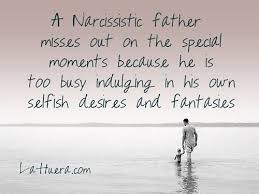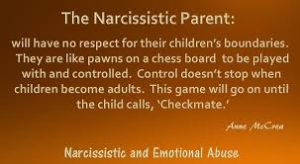
How to RecognizeCoercive Control
Coercive control is a form of ongoing bullying and terrorism used to instill fear/insecurity and to create confusion. The abuser will use tactics, such as limiting access to money or monitoring all communication, they will check your phone but stash their own phone where you cannot find it (it isn’t unusual for the narcissist to have two or three phones). They will frequently negate every opinion that you have, telling that you are “wrong” and will continue to “correct” you on things that are factual and you know them to be true. The way that they do this is by monitoring your activities. This can be done by popping by (because they happened to be in the area) when you are out with friends. They can phone you to see if the background noises are concurrent with the activity that you said you were going to attend they will want your social media passwords and demand to be able to see content (if you don’t have anything to hide why won’t you let me) but will not share theirs.
They will isolate you from you from your family and friends, they will do this by being so unpleasant around them that it becomes awkward for everyone except the narcissist – because they are working on a deliberate strategy to remove you from any support you might have and they definitely do not want their behaviour to be discussed. Coercive control happens very gradually and they are not highly controlling all of the time, so there is a push pull behaviour pattern and you never know who is going to turn up, which in itself creates tension because you can never relax.
Adult narcissists will try to control all the money coming into the household, they will use numerous ways to gain control: faux “I will take the arduous job of money management off your hands”, if they wat a joint bank account early on in the relationship, this is a warning sign, they have been known to completely empty a joint bank account for their own entertainment/purposes, without consultation and without any sense of guilt or remorse. They may insist on a receipt for absolutely everything you buy, ranging from cups of coffee to new items of clothing. This is an additional way to monitor your activities.
Narcissistic parents are very controlling with the money they give their children. For example, they will not give them pocket money so the child(ren) have to negotiate for everything with the parent, this gives the parent a feeling of power. They might refuse to bring their children to school or community sport events, the message is I tell you what you may and may not do. “If I don’t like it we are not doing it”. Some mothers will buy their children age inappropriate clothing to infantalise them and keep them in orbit around the parent. They may refuse to give them lunch money at school which isolates their children from their class mates.
They will gaslight, signs of which include:
- They will look you straight in the eye and lie to you, even when they know you know that it is a barefaced lie.This is done to keep you guessing because all of their lie will have a modicum of truth in them and this creates confusion and instability. You cannot have a healthy relationship with someone who constantly lies, once they have got away with a few small lies, they will raise the bar. They will lie even when the truth would serve them better.
- They will recruit flying monkeys and set them against you, they will also lie about a fictional conversation they had with someone and they said you were crazy, depressed and addict etc.They will tell these lies about you pretending that they are worried about your well-being, when they are really stabbing you in the back.
- They will deny that they said something, whether a promise or an insult. Denial is their go to place when they are called out on anything and you could be met with narcissistic rage. If their rage doesn’t shut you up they will start talking nonsense (word salad) and at that point you realise that the conversation is absolutely futile.
- They will destroy thing that you value, that could be a physical thing “Oh I didn’t mean to it was an accident” or it could be your reputation, parental alienation or just stir stuff up by plotting friends and family against you.
- They will constantly try to wear you down with insults, name calling, backhanded compliments, sneering at your family and friends. Their job will always be more important than yours, their family will be better than yours (even if they don’t talk to them) and you will only get invited to social occasion because of the narcissists amazing personality and charm.
- The narcissist will tell you who they are and what people think of them, rather than just being. They narrative of who they tell you they are never comes near to the reality of their behaviour/capacities. They will promise the earth, moon and the stars and deliver on nothing, promises made of things to happen in the future never happen this is because they have no self-awareness and there is a massive disconnection between who they think they are, what their talents and skill are and their genuine strengths and weaknesses.
- A narcissist is usually a street angel and a house devil, their behaviour in front of others will be completely different than it is behind closed doors. They are shape shifters, so their behaviour will change according to who is in front of them, they will do whatever they think will impress the person most. So, if it is being “sensitive” they will act sensitive, if it is being crude and vulgar they can become that too, they are great actors and know how to put on a show.
- They project anything that they don’t like about themselves on to others. Narcissists are never wrong, if they get caught out in a lie or an act of deception they will turn it on its head and accuse you of the same, or they will bring up something that you did “wrong” months even years ago, so that you end up being defensive instead of dealing with the issue in hand. If you can stay on course with the argument, they will go into word salad mode (talking absolute nonsense) so that you realise that there is no point in continuing the argument. They narcissist will consider this as a “win” and will walk away feeling victorious where is you will end up feeling defeated and confused. You might even blame yourself in the beginning for not being clear enough, but be assured this is a strategy they use to wear you down.
- They will employ flying monkeys (people who the seek out who will help them discredit you). They will say things like “You aren’t going to that party are you? John told me that you were only invited out of politeness, I wouldn’t go if I were you” This has a double effect of isolating you socially and making you feel less than. After a while you might realise that John definitely didn’t say anything of the sort and was disappointed not to see you at the party, however, at the time your reaction is to not go somewhere you are not welcome. After all who would say something so nasty? What could they possibly gain from it, but it is all part of the same strategy of trying to break you and make you feel unworthy, unwelcome and less than.
- They will name call, but frequently dress it up as false concern for your well-being. They will say things like “you always over react to situations, I think you should see someone about that” (after they have been abusive to you). “I have some friends who know about your situation and they say that they can recommend a therapist for you”. This can mean that they have started a smear campaign against you or they can just be making it up exclusively to make you feel vulnerable and being talked about behind your back in a negative way.
- To control you even more they might put CCTV inside and outside your house, put a tracking device on your car or put a touch sensitive pad beneath they keyboard of your computer so that they can see who and what you have written to other people/institutions, even if you think you have deleted all evidence of the communication. If you find any evidence of their surveillance they will tell you it is for security reason and they just want to make sure that you are safe. This is a gross violation of boundaries and privacy but they will defend it with ridiculous counter arguments like “it is only because I love you so much that I want to know that you are okay all of the time”.
- They might try to alienate your children from you by telling a plethora of lies, trying to humiliate you in front of your children and then tell the children that you are useless/weak or get the children on their side by being excessively permissive either through money or by doing everything for the child. The narcissist has absolutely no problem with treating their children as pawns to hurt their partner and couldn’t care less about the long term effects that this can have on a child. Very often they will treat their child as their own personal therapist (aka dumping ground) and as such will rob their child of their childhood because they expect their child to take on adult responsibilities at an inappropriately young age.
- The narcissist can often show high levels of jealousy. This is not “normal” jealousy as it can include your relationships with your family, friends, children and even pets. They will accuse you of preferring the others to them and will try to clip your wings. If they cannot isolate you they can sulk, give you the silent treatment or even threaten the more vulnerable in your family such as children and pets. They know no limits and do not care who they hurt to get control of you, wear you down and try to destroy you. It is important to note that a narcissist can push someone to their limit where they might commit suicide or they might physically harm them, at best by punching them or throwing things at them at worst they can kill their partner.
- Sex is another area where narcissists like to control. Either by demanding sex irrespective of whether their partner wants it or not or withholding sex when the partner wants it. Sex is always superficial with a narcissist because they will always use their partner to make love to themselves. They only see their partner as a vehicle for their own gratification and will therefore objectify them and see love making as a performance. There is never any sense of communion when having sex with a narcissist.





